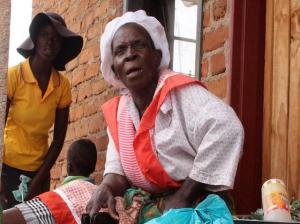People living with HIV in Zimbabwe facing drugs shortages

Published: 2013 February 01 19:51:28 (3674 Views)
Many Zimbabwean people living with HIV risk succumbing to infections due to a shortage of cotrimoxazole, an antibiotic used to fight common infections caused by a compromised immune system, in public hospitals.
Some affected people said each time they visited public health institutions, they were told that the drug was in short supply and were advised to buy it from private pharmacies.
“There is a serious shortage of cotrimoxazole in the country and that affects our health. When we go to clinics to collect anti-retroviral (ARV) drugs, those who are supposed to take cotrimoxazole are told to buy their own from pharmacies,” said Mrs Elizabeth Sibanda, the advocacy officer for Zimbabwe National Network for People Living with HIV (ZNNP+) in Bulawayo.
“The problem is that some people cannot afford to buy these drugs every month and that puts them in a dilemma.”
ZNNP+ chairperson for Zvishavane Mrs Maifa Banda said cotrimoxazole drug must be given for free to people living with HIV.
“We are supposed to get this drug for free but clinics will tell you to buy your own. One has to spend about $5 per month and not everyone can afford that,” she said.
Matabeleland North provincial ZNNP+ coordinator Mr Sipho Mahlangu said people living with HIV risk being attacked by opportunistic infections if they do not get the drug.
“We have the same problem in Matabeleland North. Victoria Falls was lucky enough to get a donor who pledged to supply drugs to 4 000 people. At least this can take us to the next two months,” said Mr Mahlangu. However, other districts remain in a dilemma. The shortage of this drug means people living with HIV cannot effectively fight opportunistic infections and that creates problems.”
ZNNP+ board chairman Mr Sebastian Chinhaire described the shortage of cotrimoxazole as a national problem.
“This is a national problem and it pains us a lot. Cotrimoxazole should be given for free. We have engaged the Ministry of Health and Child Welfare over the issue but things have not changed. The country has over 500 000 people on ART and half of these are taking cotrimoxazole to boost their immune system. This is a problem that needs to be addressed,” said Mr Chinhaire.
“The most affected are the people who live in rural areas and some of them cannot even get $1. They cannot also afford transport costs.
“We are left to get aid from donors when the Government is there. If these donors pull out it means thousands of our members would be wiped away.”
Contacted for comment, a Ministry of Health and Child Welfare official from the pharmaceutical directorate, a Mr Mudzimu, said the Government was aware of the issue but declined to comment, referring all questions to the permanent secretary, Dr Gerald Gwinji.
“Yes we are aware of that development and have discussed a number of such issues. But the spokesperson of the ministry is the permanent secretary, Dr Gwinji. If he gives us the go ahead we will discuss that in detail,” said Mr Mudzimu.
Dr Gwinji could not be reached on his mobile phone.
- Chronicle
Some affected people said each time they visited public health institutions, they were told that the drug was in short supply and were advised to buy it from private pharmacies.
“There is a serious shortage of cotrimoxazole in the country and that affects our health. When we go to clinics to collect anti-retroviral (ARV) drugs, those who are supposed to take cotrimoxazole are told to buy their own from pharmacies,” said Mrs Elizabeth Sibanda, the advocacy officer for Zimbabwe National Network for People Living with HIV (ZNNP+) in Bulawayo.
“The problem is that some people cannot afford to buy these drugs every month and that puts them in a dilemma.”
ZNNP+ chairperson for Zvishavane Mrs Maifa Banda said cotrimoxazole drug must be given for free to people living with HIV.
“We are supposed to get this drug for free but clinics will tell you to buy your own. One has to spend about $5 per month and not everyone can afford that,” she said.
Matabeleland North provincial ZNNP+ coordinator Mr Sipho Mahlangu said people living with HIV risk being attacked by opportunistic infections if they do not get the drug.
“We have the same problem in Matabeleland North. Victoria Falls was lucky enough to get a donor who pledged to supply drugs to 4 000 people. At least this can take us to the next two months,” said Mr Mahlangu. However, other districts remain in a dilemma. The shortage of this drug means people living with HIV cannot effectively fight opportunistic infections and that creates problems.”
ZNNP+ board chairman Mr Sebastian Chinhaire described the shortage of cotrimoxazole as a national problem.
“This is a national problem and it pains us a lot. Cotrimoxazole should be given for free. We have engaged the Ministry of Health and Child Welfare over the issue but things have not changed. The country has over 500 000 people on ART and half of these are taking cotrimoxazole to boost their immune system. This is a problem that needs to be addressed,” said Mr Chinhaire.
“The most affected are the people who live in rural areas and some of them cannot even get $1. They cannot also afford transport costs.
“We are left to get aid from donors when the Government is there. If these donors pull out it means thousands of our members would be wiped away.”
Contacted for comment, a Ministry of Health and Child Welfare official from the pharmaceutical directorate, a Mr Mudzimu, said the Government was aware of the issue but declined to comment, referring all questions to the permanent secretary, Dr Gerald Gwinji.
“Yes we are aware of that development and have discussed a number of such issues. But the spokesperson of the ministry is the permanent secretary, Dr Gwinji. If he gives us the go ahead we will discuss that in detail,” said Mr Mudzimu.
Dr Gwinji could not be reached on his mobile phone.
- Chronicle
You May Like These Videos
Comments
There are no comments.
Get Zim Metro Updates Alerts
Big Reads

Schoolgirl drops out after continuous 'sexual abuse' by teacher
by Staff Reporter | 2019 August 13 07:42:33
Mugabe Knows Nothing About The Zimbabwe Constitution: MP
by Staff Reporter | 2016 October 01 08:12:02
Zim's Protesting Graduates Risk Losing Degrees For Expressing Anger Against Mugabe
by Staff Reporter | 2016 October 01 07:57:08
Troubled Harare Giants Dynamos Falls Into Another Deep Crisis
by Own Correspondent | 2016 October 01 07:49:17
Grace Mugabe Grovels At Mnangagwa, Says I Did Not Ask Ubaba To Fire You
by Staff Reporter | 2016 October 01 07:31:48
Mugabe Attacks Mawarire, Claims The Exiled Pastor Failed To Divide Zimbabwe
by Staff Reporter | 2016 October 01 07:19:13
Shock As Local Bank Denies 'Rich' Mugabe's Son Heifty Credit
by Own Correspondent | 2016 September 30 19:14:54
Trouble For Police Officers Who Have Been Mercilessly Bludgeoning Protesters
by Staff Reporter | 2016 October 01 07:20:19
Mugabe "Home Coming" And "Thank You" Rally On Cards
by Own Correspondent | 2016 September 23 06:48:24
Prof Moyo Was Dumped By Western Embassies, Claims Mutsvangwa
by Staff Reporter | 2016 September 22 10:08:07
Broke RBZ Tracks Down Zimbabweans Living Outside The Country Over Taxi
by Staff Reporter | 2016 September 22 09:16:20
You Are Too Old To Lead, Aging Zim President Mugabe Told
by Own Correspondent | 2016 September 22 07:19:25
Anti-Corruption Commission Loses Property In Failed Probe
by Own Correspondent | 2016 September 20 03:18:19
SHOCKING:14 Year Old HIV-Positive Boy Rapes 7 Pupils
by Own Correspondent | 2016 September 20 00:04:55

 WATCH: Victims Narrate Ordeal After Being Clobbered By Riot Cops
WATCH: Victims Narrate Ordeal After Being Clobbered By Riot Cops FLASHBACK: Morgan Tsvangirai Won't Resign Despite Illness
FLASHBACK: Morgan Tsvangirai Won't Resign Despite Illness  Police Violently Beat Harare Protesters
Police Violently Beat Harare Protesters  Zimbabwean Man Who Was Shot By Tswana Employer Appeals For Help
Zimbabwean Man Who Was Shot By Tswana Employer Appeals For Help











.jpg)






